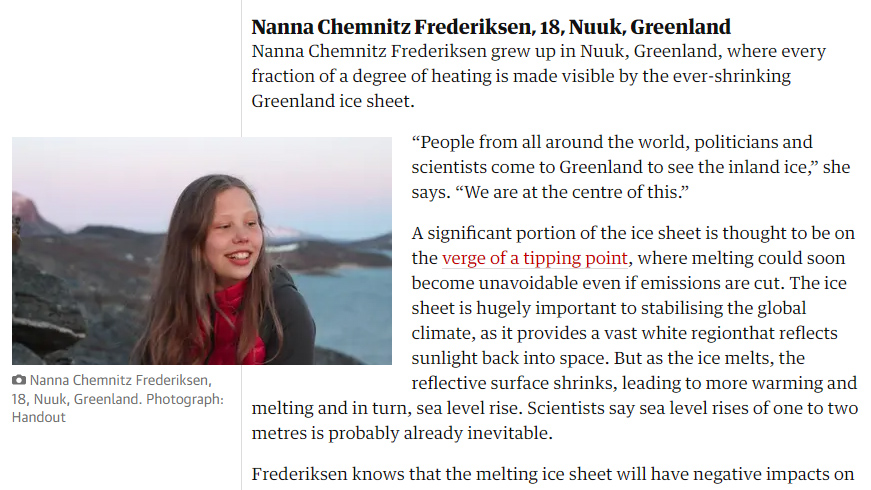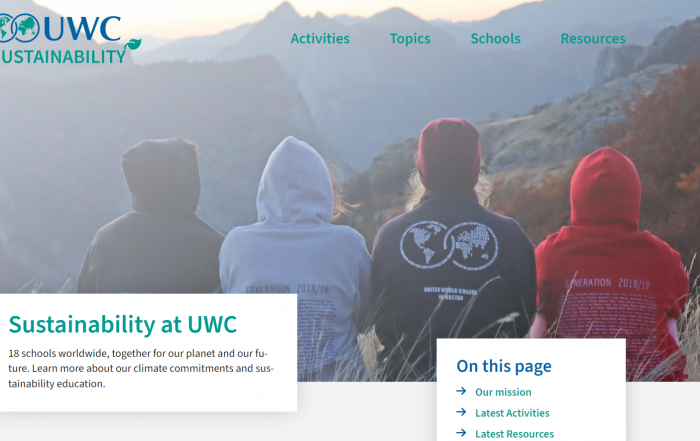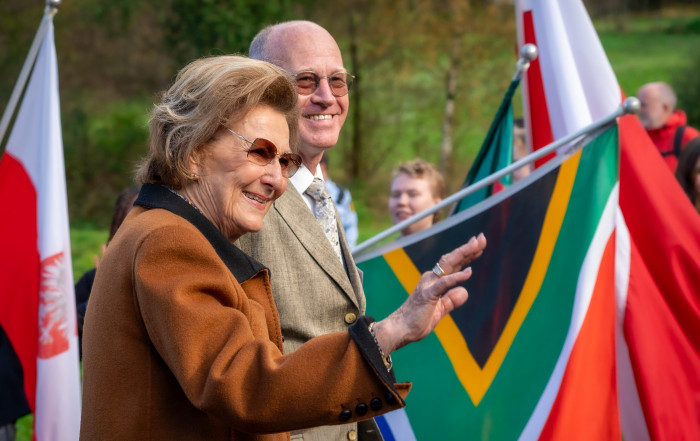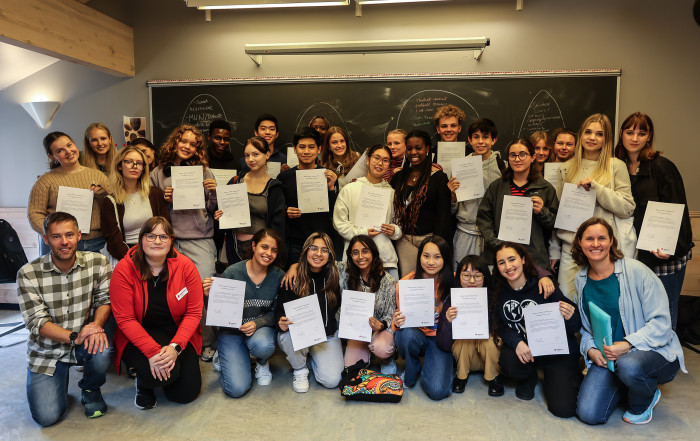“People from all around the world, politicians and scientists come to Greenland to see the inland ice,” she says. “We are at the centre of this.”
A significant portion of the ice sheet is thought to be on the verge of a tipping point, where melting could soon become unavoidable even if emissions are cut. The ice sheet is hugely important to stabilizing the global climate, as it provides a vast white region that reflects sunlight back into space. But as the ice melts, the reflective surface shrinks, leading to more warming and melting and in turn, sea level rise. Scientists say sea level rises of one to two metres is probably already inevitable.
Frederiksen knows that the melting ice sheet will have negative impacts on communities across Greenland, especially in northern settlements such as Qaanaaq where permafrost melting is destabilizing homes and roads and impacting how fishers and hunters operate.
But her real concern lies on the impact it will have globally. “I am not so scared of what the effects of the melting of ice in Greenland will be,” Frederiksen says, “It scares me what effect it can have for the rest of the world.”
Latest News
UWC Sustainability Webpage Launch
On UWC Day, on the banks of our beautiful Norwegian fjord, celebrating the UN International Day of Peace, we came together as a community to host our patron, Her Majesty Queen Sonja of [...]
Her Majesty Queen Sonja’s Visit on UWC Day: Honoring 28 Years of Patronage
As we celebrated UWC Day 2023 under the theme "Shaping a Sustainable Future," we were honoured to welcome Her Majesty Queen Sonja, Queen of Norway, to our campus. Her visit not only marked a [...]
Red Cross Training: Meeting Point to Include Everyone
Two Red Cross instructors spent two days on campus last week, and as a result, we have an eager group of first-year students with valuable training to do voluntary work. "UWC Red Cross [...]




